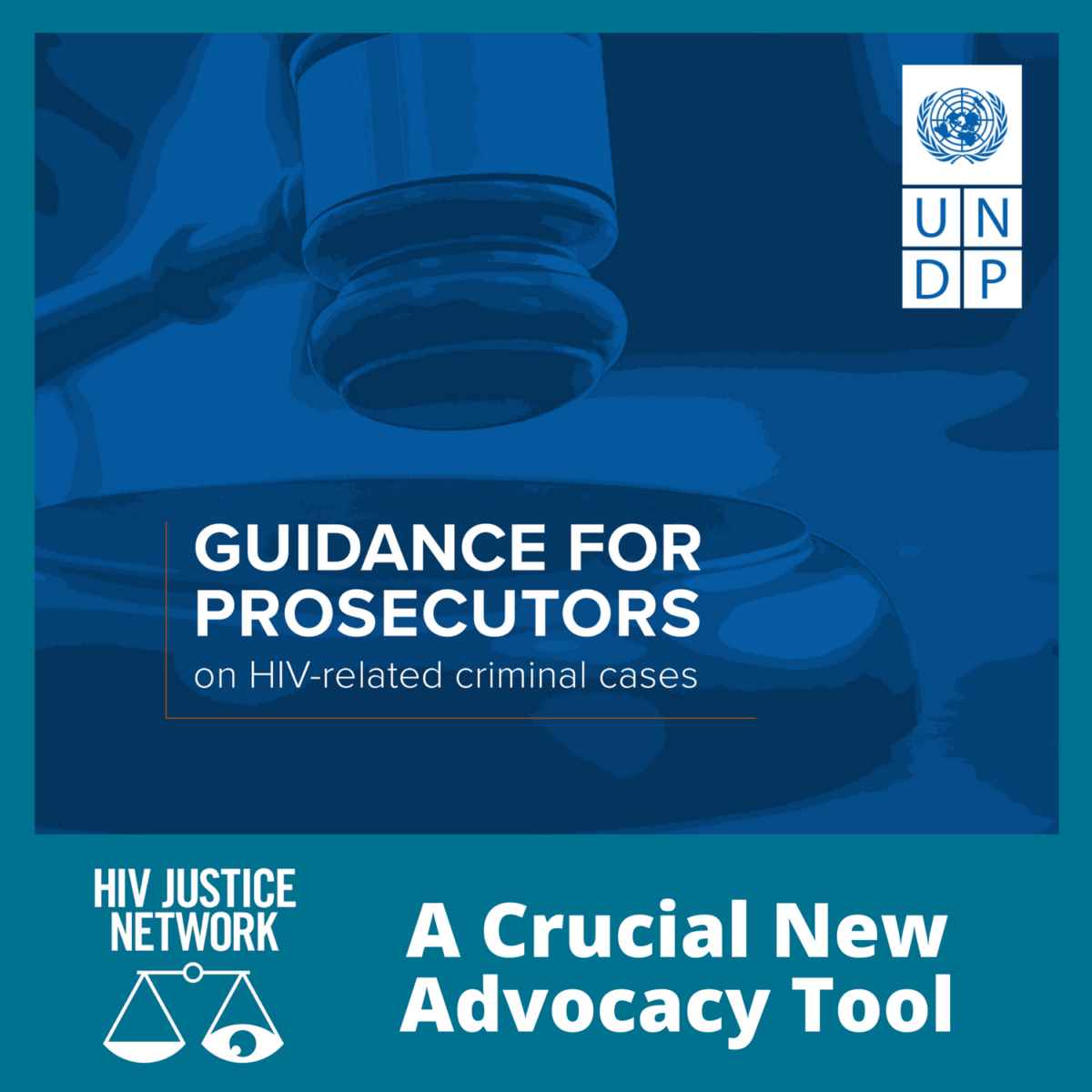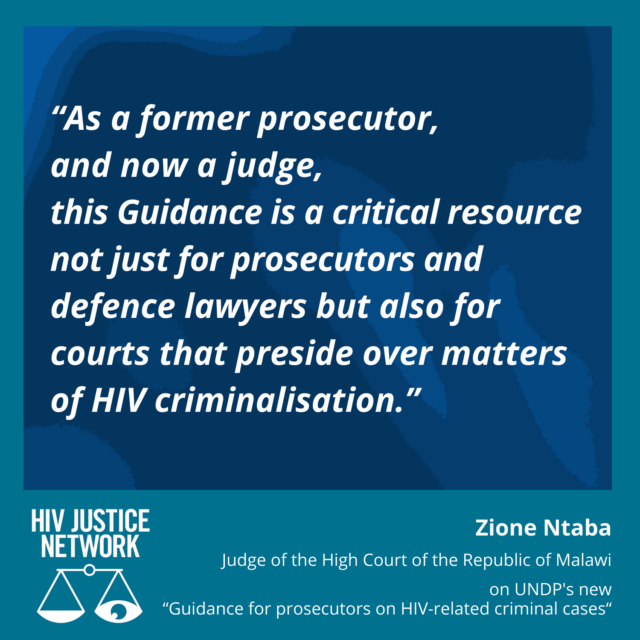
A crucial new advocacy tool to challenge HIV criminalisation
This week UNDP published a crucial new tool to support our advocacy efforts in challenging HIV criminalisation.
Guidance for prosecutors on HIV-related criminal cases presents ten key principles to help prosecutors understand the complex issues involved in a prosecution involving an allegation of HIV non-disclosure, potential or perceived exposure, or transmission. It also includes key recommendations from the Global Commission, UNAIDS’ 2013 guidance for Ending overly-broad criminalisation of HIV non-disclosure, exposure, and transmission: Critical scientific, medical, and legal considerations, and the 2018 Expert Consensus Statement on the Science of HIV in the Context of Criminal Law.
These principles are:
- Prosecutions should be informed at all stages by the most reliable evidence
- Ensure that rights of complainant, defendant, and witnesses are respected throughout
- Pursue prosecutions in only limited circumstances, as HIV most effectively addressed as a public health matter
- Establish a sufficient evidentiary basis for a prosecution
- Consider whether prosecution in a given case is in the public interest
- Generally consent to pre-trial release, absent exceptional circumstances
- Avoid arguments that could be inflammatory, prejudicial, or contribute to public misinformation about HIV
- Ensure correct interpretation of science and its limitations if seeking to prove actual HIV transmission
- Ensure no discrimination in sentencing
- Ensure sentencing is not disproportionate
Although the Guidance is aimed specifically at prosecutors, it will be useful for lawmakers, judges, and defence lawyers

So far, very few jurisdictions have produced such guidelines. Ensuring that advocates understand why these Guidelines are an important harm reduction tool in our work towards ending HIV criminalisation, and how to advocate for them, will be a major focus of our work moving forward.
Video toolkit: How to advocate for prosecutorial guidelines. This workshop held in Berlin in September 2012, discussed the challenges associated with the creation of such guidelines, providing important insights from prosecutors and civil society alike, and included the European premiere of HJN’s documentary ‘Doing HIV Justice: Clarifying criminal law and policy through prosecutorial guidance’.
The Guidance was developed for UNDP by our HIV JUSTICE WORLDWIDE colleagues, Richard Elliott and Cécile Kazatchkine of the HIV Legal Network. The process, which took two years, involved multiple consultations. Several other colleagues, including HJN’s Executive Director Edwin J Bernard, HJN Supervisory Board member Lisa Power, and HJN Global Advisory Panel member Edwin Cameron were part of the Project Advisory Committee.
At the launch of the Guidelines earlier this week, UNDP committed to continuing to support civil society in working with law and policymakers, and the criminal legal system, towards ending HIV criminalisation as part of its ongoing follow-up work on behalf of the Global Commission on HIV and Law, which published its main report in 2012 as well as a 2018 supplement. An evaluation of the Global Commission, published this month, highlights the many ways the Global Commission has beneficially impacted HIV-related laws and policies, including galvanising the movement for HIV Justice.